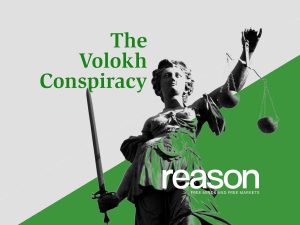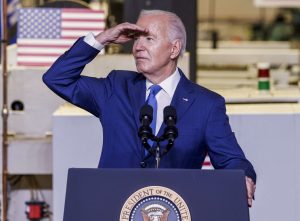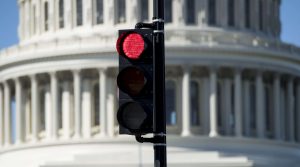Justice Ginsburg’s TikTok Divestiture Opinion and Subsequent Engagement with Social Media.
The intersection of law, technology, and societal change often manifests in unexpected ways. A prime example lies in the early entrepreneurial endeavors of Judge Douglas Ginsburg of the D.C. Circuit Court of Appeals, who, before embarking on his distinguished legal career, founded Operation Match, widely recognized as the first computerized dating service in the United States. This fascinating historical footnote, brought to light by Emory law professor Matt Lawrence, adds a compelling dimension to Judge Ginsburg’s profile, particularly in light of his recent high-profile involvement in the legal wrangling surrounding the social media platform TikTok. The juxtaposition of his early foray into the world of technology-driven social connection and his later judicial pronouncements on the regulation of contemporary social media giants illuminates the enduring interplay between innovation, social dynamics, and the legal frameworks that grapple with their implications.
Judge Ginsburg’s entrepreneurial spirit took root in the mid-1960s, a period marked by burgeoning technological advancements and evolving social mores. Recognizing the potential of nascent computer technology to address the age-old challenge of finding compatible partners, he took a hiatus from his collegiate studies to launch Operation Match. This venture, groundbreaking for its time, involved the collection of data from participants through questionnaires, which were then processed by computers to identify potential matches based on shared interests and preferences. This innovative approach not only anticipated the rise of online dating decades later but also reflected the burgeoning acceptance of technology as a mediating force in personal relationships. Operation Match, though a commercial enterprise, inadvertently pioneered a new social paradigm, challenging traditional approaches to courtship and foreshadowing the digital transformation of social interaction that would become increasingly prevalent in subsequent decades.
The story of Operation Match provides a unique lens through which to examine Judge Ginsburg’s later judicial work, especially his involvement in the TikTok divestiture case. This case, centered on concerns about data security and national security implications related to the popular social media platform, highlights the complex legal and regulatory challenges posed by the rise of global digital networks. Judge Ginsburg’s opinion in the TikTok case, while rooted in contemporary legal principles, arguably resonates with his earlier experiences in navigating the nascent landscape of technology-mediated social interaction. While the technologies and societal contexts differ significantly, both Operation Match and the TikTok case underscore the ongoing tension between innovation, individual privacy, and governmental oversight.
The evolution from Operation Match to the TikTok divestiture case illustrates the remarkable trajectory of both technology and the legal frameworks that seek to regulate its impact. Judge Ginsburg’s personal journey mirrors the broader societal shift towards increasing reliance on technology for communication, connection, and even the pursuit of romantic relationships. The very concept of a computerized dating service, once revolutionary, now seems almost quaint in the age of sophisticated algorithms and ubiquitous social media platforms. Yet, the underlying principles of using technology to facilitate human connection remain remarkably consistent, highlighting the enduring human desire for belonging and the evolving role of technology in fulfilling that need.
The seemingly disparate threads of Judge Ginsburg’s early entrepreneurial venture and his later judicial pronouncements on the regulation of social media offer valuable insights into the complex interplay between law, technology, and social change. His experience with Operation Match provides a historical anchor, demonstrating the enduring power of innovation to reshape social landscapes. His involvement in the TikTok case, on the other hand, underscores the ongoing challenges of adapting legal frameworks to the rapidly evolving digital world. The juxtaposition of these two seemingly disparate aspects of his career provides a compelling narrative of how individual experiences and perspectives can inform the broader dialogue surrounding the regulation of technology and its impact on society.
In conclusion, Judge Ginsburg’s story serves as a reminder of the unpredictable yet often intertwined nature of individual pursuits and broader societal trends. His early foray into the world of computer dating, while seemingly a footnote in his distinguished legal career, offers a fascinating glimpse into the genesis of the digital transformation of social interaction. Viewed through the lens of his later judicial work, particularly his involvement in the TikTok divestiture case, it becomes clear that the intersection of law, technology, and society is a dynamic and evolving landscape, one shaped by individual innovators, legal precedents, and the ongoing societal negotiation of the benefits and challenges presented by technological advancements. The story of Judge Ginsburg and Operation Match provides a compelling historical perspective on this ongoing dialogue, offering valuable insights into the complexities of navigating the ever-changing relationship between humans and technology.
Share this content:








Post Comment